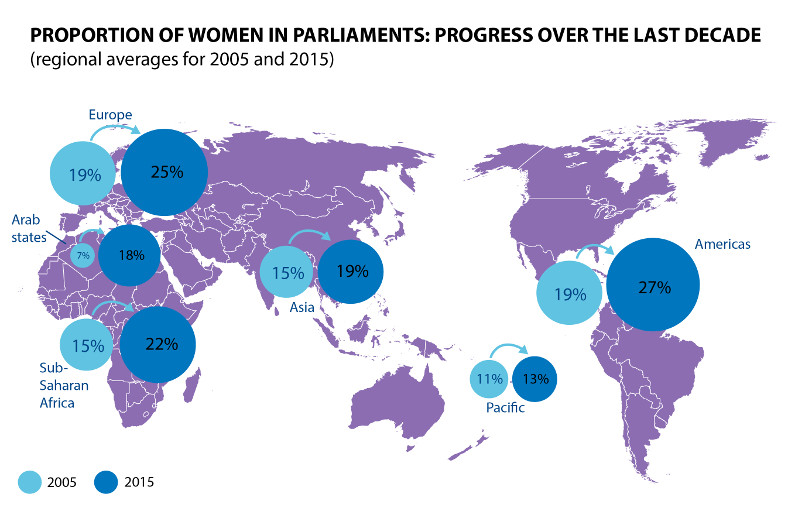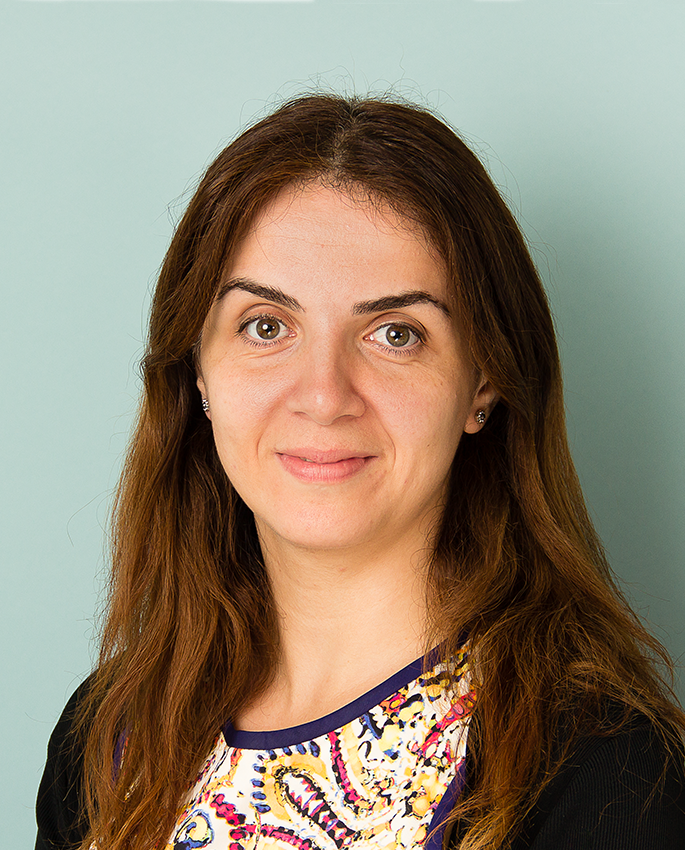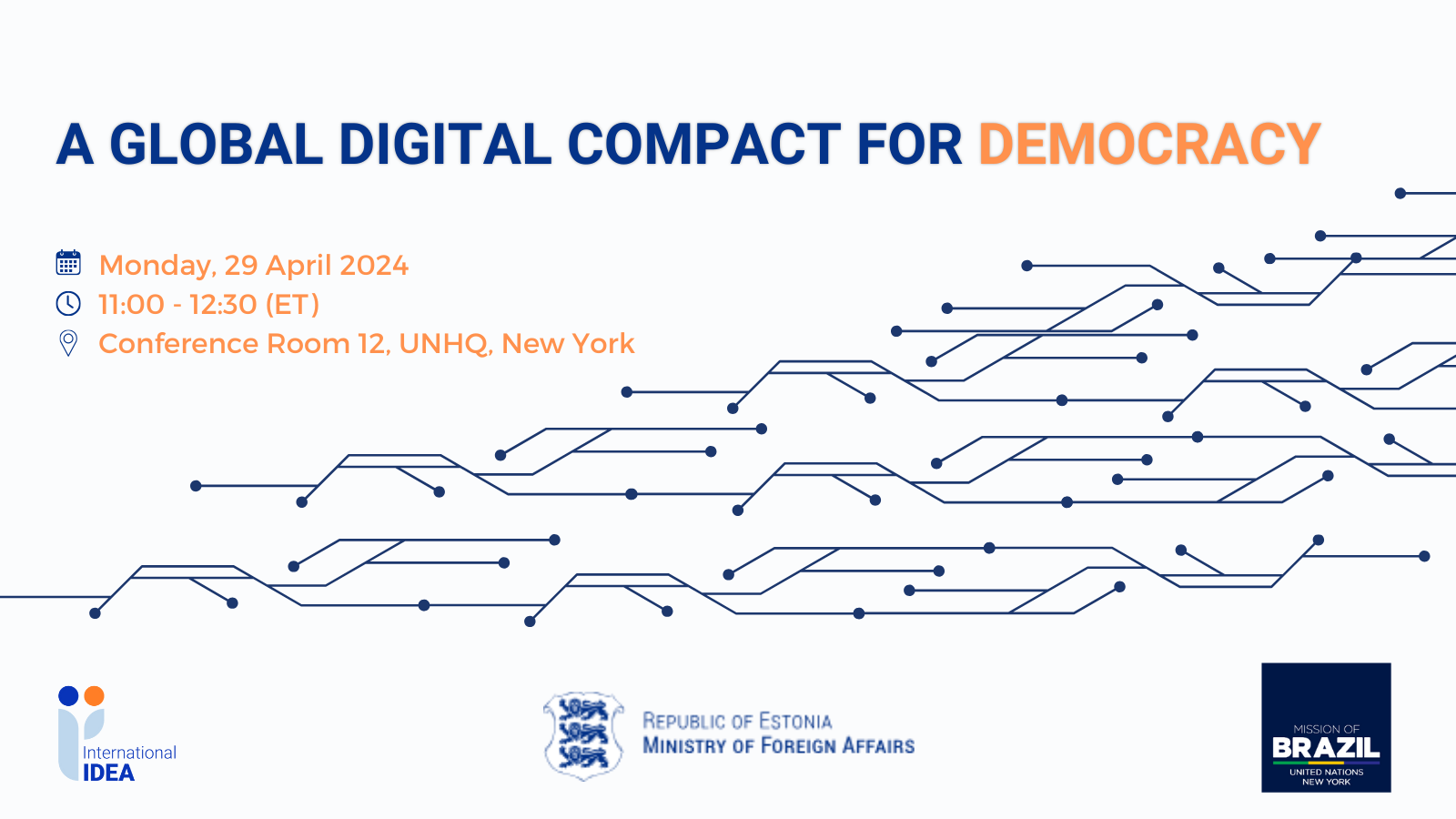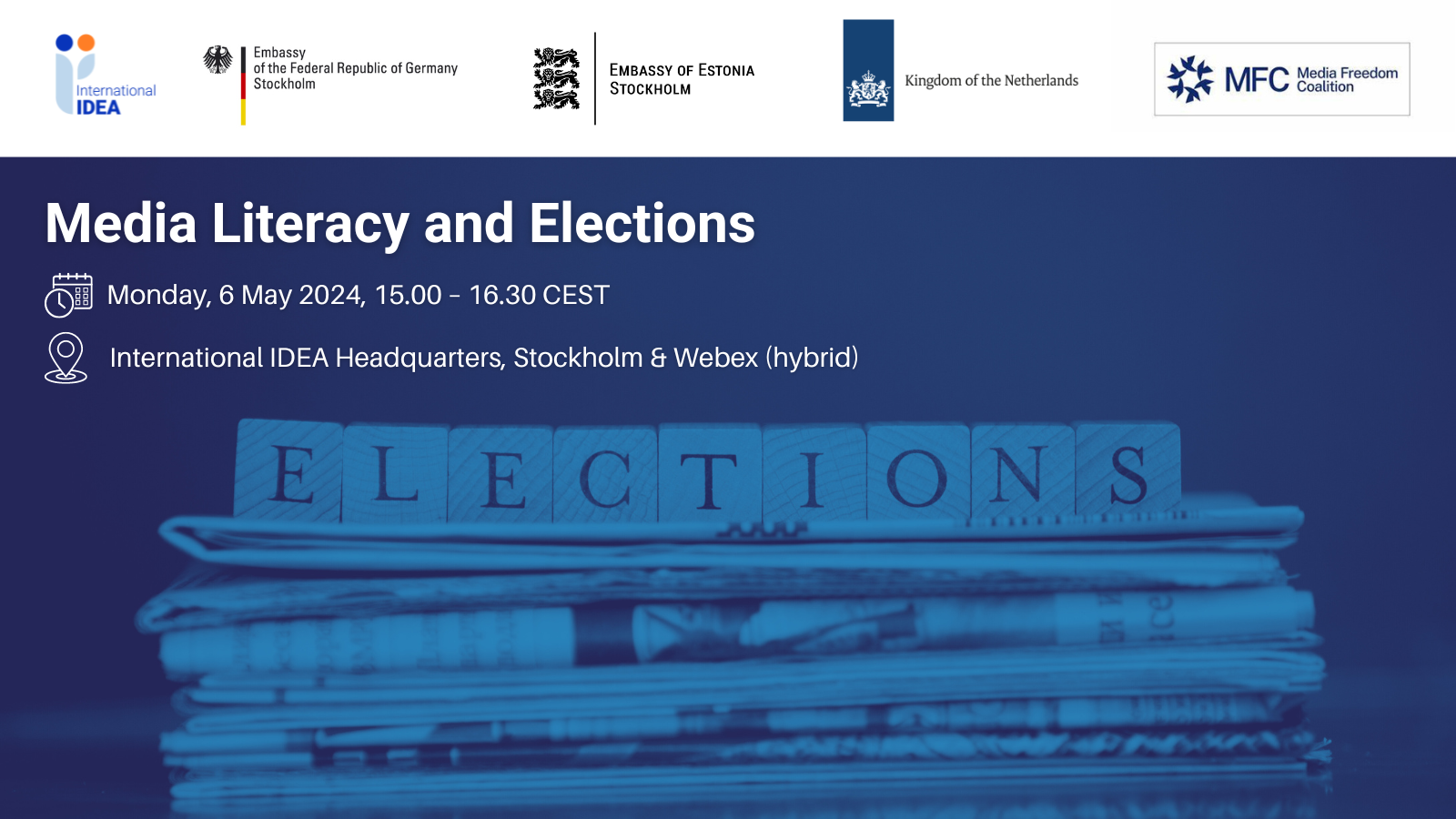
As International Women’s Day comes around once again – what milestones and achievements in terms of women in politics can we celebrate from 2014?
Currently, women MPs represent just 22 per cent1 of the total number of parliamentarians globally, about 4 per cent increase over the past 5 years. This is still falling short of the critical milestone of achieving a minimum of 30 per cent female representation in politics – the target which helps to ensure the presence of a critical mass of women in politics.
Rwanda has broken new ground with 63.8 per cent women elected into parliament during the 2013 elections. However, achieving the benchmark of 30 per cent of women MPs remains largely unmet in the majority of countries. Only 41 countries have surpassed the 30 per cent target - about a fifth of all countries. In total, 12 of these countries have achieved 40 per cent or more women in their parliaments. On a more negative note, 73 countries still have 15 per cent or less women in their parliaments, with 5 of these retaining all male legislatures (Micronesia, Palau, Qatar, Tonga, Vanuatu). In terms of the regional trends, Americas, Sub-Saharan Africa and the Middle East have shown significant increases over the last years. These are the result of important legal and policy reforms undertaken due to pressure from women’s groups and political openings arising from public upheavals.
Highlights 2014-2015
Ongoing efforts in Chile to adopt sweeping changes to its electoral system will finally help the country join its regional peers on having some of the most progressive laws on gender quotas and gender parity in electoral lists. The reformed electoral law will require parties for the next four electoral cycles, starting in 2017 to nominate not less than 40 per cent or no more than 60 per cent of women and men as part of their candidate lists. The reforms will also establish a higher compensatory fee for women candidates for every vote won in elections, designed to help reimburse campaign expenses. This is irrespective whether a women candidate won or lost the election. In addition, there will be an increased amount of public funding to parties for each female candidate that they elect.
Mexico joins a growing number of countries, particularly in the Latin American region, which continue to further raise the bar and stipulate the principle of gender parity in elected legislatures as one of their constitutional principles. The constitutional amendment of 2014 requires gender parity in the nomination of election candidates for federal and local congressional elections and requires parties to adopt necessary measures to this extent. Another vital constitutional reform in late 2014, spearheaded by indigenous women politicians, ensures equal rights of indigenous women and men to participate in elections (include the link to the below article).
In Tunisia, elections in October 2014 marked the highest number of women elected in the national assembly with 31 per cent - a reassuring result of women’s active advocacy and engagement in the drafting of the new constitution, which includes constitutional guarantees for equality and gender balance in elected bodies of government.
In Namibia, the renewed parliament features 41.3 per cent of women MPs – almost doubled in number from the last parliament, making the country the fourth among the African countries with the highest number of women in parliament – Rwanda 63.8 per cent, Seychelles 43.8 per cent, Senegal 42.7 per cent and South Africa – 41.5 per cent.
International IDEA works to consolidate and disseminate knowledge on a variety of areas to promote gender-equality including:
- the role of electoral system design and strategically tailored gender quotas on women’s chances of successful nomination and election
- the impact of democratic and transparent party practices on creating a level playing field for women and men in politics
- the disenfranchising effect that various forms of gender-based discrimination and violence have on women’s entry into public and political spheres.
Electoral System Design Does Matter
Globally, proportional representation systems with their list-based nature provide better opportunities for women to garner nomination and contest elected offices, evidenced by the fact that such systems when compared with mixed or plurality-majority systems show the highest number of women elected. In addition, such systems provide a good environment for the adoption of gender quotas, making the electoral environment and related conditions more viable for women’s access and participation.
Political parties with transparent and democratic organization and internal process
Political parties remain one of the key gatekeepers of gender equality in politics. Parties hold a key to candidate selection and nomination as well as the administration of political funds, including public funding for political activities. Therefore, transparency and accountability as operating principles are essential, as well as the establishment of special measures to ensure that women and men within political parties have an equal and equitable access to the essential resource of political finance. Out of all countries which currently have public funding for political parties, only 21 countries provide such funding to parties based on considerations related to gender balance in candidates. In addition, 12 countries require parties to set aside funding for activities related to the promotion of gender equality or set other, related rules , for example reduced candidate nomination fees for women candidates.
Globally, out of all countries which have surpassed 30 per cent benchmark of women’s representation (41 countries), 79 per cent use some type of gender quota, while only 19 per cent have no quota regulations.
Over the past years, amid a slow progress in increasing the number of women in politics, the universal recognition of the negative effects of exclusionary and gender-blind policies and an immediate need to address it has gained a significant momentum. This recognition is underscored by an increased number of constitutional, electoral and policy reform initiatives across the globe, from countries so diverse as Tunisia and Libya to Mexico and Tanzania presenting increased opportunities to women from various walks of life – active and engaged citizens, rights activists or legislators to express their needs and interests in these reform processes.



